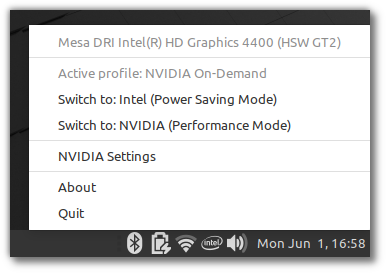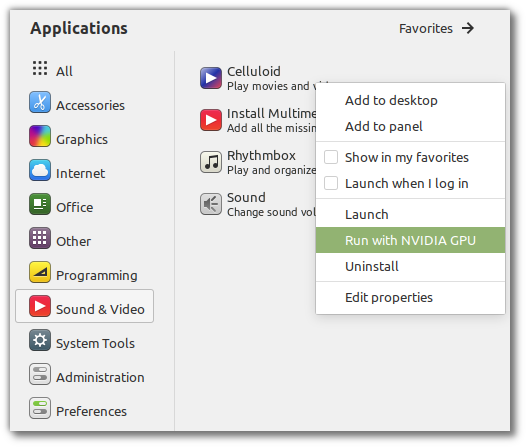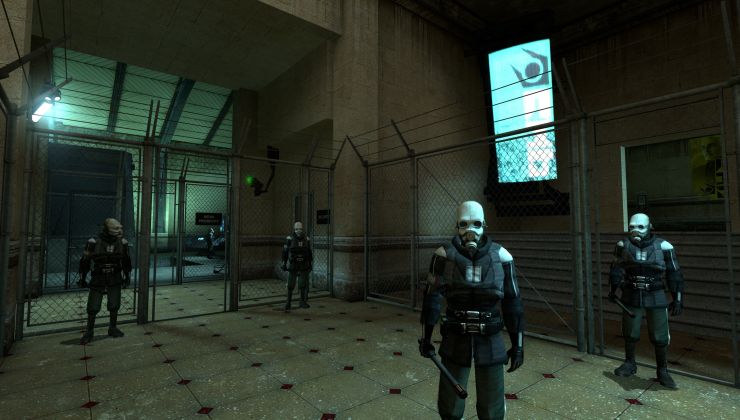The Linux Mint distribution team put out another of their monthly updates, and this month was quite interesting.
In the past the Linux Mint team had been quite vocal about Snaps, the next-generation Linux packaging system backed by Ubuntu maker Canonical. Like Flatpak, they're trying to redefine how Linux users install packages. The main issue here it seems (from what they said) is that Snaps are more locked-down. They compared Snaps to using proprietary software as you "can't audit them, hold them, modify them or even point snap to a different store", it pushes Ubuntu directly and Snaps are done in the background.
Mint's founder Clément Lefèbvre has said that with Linux Mint 20, they will push back firmly against Snaps. Currently in Ubuntu, which Mint builds off, Chromium is an empty package which installs a Snap (info) so the Mint team will ensure it tells you why and how to go and get Chromium yourself. Additionally, by default APT on Mint will not let snapd get installed but you will be able to do so manually.
NVIDIA users rejoice! NVIDIA Optimus is to get better Mint support, with their included applet being able to show your GPU and select what card to use from the menu.
Optimus support goes further though, as they will also now fully support the “On-Demand” profile too in the MATE and Cinnamon desktops directly. You will be able to get a menu option to run something with the more powerful NVIDIA GPU. Like we've seen GNOME be able to do with the 3.36 release:
As for theme changes, the additions and tweaks to colours they previously announced will not happen due to a fair amount of negative feedback. They're not stopping though, instead they will seek feedback about each colour option individually during the Beta period of Linux Mint 20.
See the Linux Mint monthly update here. Their attention to the small details are always nice to see.
Instead of installing something that usually takes 50 MB for example, it takes 1.9 GB. Errr, no! :crazy:
Lets check this out:
My PHPStorm snap package eats up 349MB. The generic tar.gz download unpacks to nearly 900MBs. How's that? And no, there is no deb package available.
They look awful on a 4k monitor
I don't have many snaps, but I use the aforementioned PHPStorm daily on a WQHD setup and it looks totally "native". I've also tried it on a 4k display - no problems either.
are slow to start up
Agreed. One could add that this only happens the first time. For me it is a pretty standard four seconds delay (on an SSD) - annoying for a browser, not so for an IDE.
and take up way too much space.
See above. Just for verification: The snap package of Chromium eats up 157MB, synaptic tells me that the deb package occupies 219MB. (For the faint of heart: I've removed the Chromium after this check immediately.)
I've checked the snap sizes both with
snap info <package>and
du -hcs /var/lib/snapd/snaps/*I do use deb packages wherever they are available since I like to have everything in one place - which for me is synaptic. But I gladly prefer snap packages over some tar.gz binaries extracted somewhere without any automatic updates and self-fabricated .desktop files.
Sorry, but this snaps-are-so-evil attiude is... well, pathetic.
Seems as if systemd won't go the way of the Dodo (as opposed to Devuan) and Gnome 3 is still not dead after all those years the community needs something else to be upset about.
Funny. So Snaps are the new systemd. Something one can complain about endlessly, bolstered quite frequently by unfound "facts".
Regardless of the merits or otherwise of any given change, people frothing themselves up because of something they read on reddit or heard on YouTube is really self-destructive. Desktop Linux, and Linux gaming in particular, has enough stacked against us without people getting distracted by apocalypse du jour. It's all just nonsense, but people like being outraged.
Please accept that snap does not enjoy the kind of support from the greater Linux community that other controversial projects like systemd (or directly competing projects like flatpak) do. It's very much a Canonical project, and they seem to want to keep it that way. I personally don't mind at all that snaps exist as an option, but I simultaneously don't see why I should mind that Mint is not jumping on that particular train at this point.
Regardless of how useful container tech can be in many areas of computing, there are valid reasons why perfectly sane and knowledgeable people might not be enthusiastic about a particular use case or implementation. And many of those people have embraced projects like systemd, simply because they're useful to them in some tangible way. I'd claim to be one of those people, but I don't think I'm qualified to assess my own sanity.
"You're not fans of a thing I like so you must be ignorant and get all your info on social media." With such a confrontative attitude, I'm sure you feel right at home on Reddit and YouTube.Agreed. I don't personally see the broader community (outside of Ubuntu fans) as particularly enthusiastic about Snaps.
Please accept that snap does not enjoy the kind of support from the greater Linux community that other controversial projects like systemd (or directly competing projects like flatpak) do. It's very much a Canonical project, and they seem to want to keep it that way. I personally don't mind at all that snaps exist as an option, but I simultaneously don't see why I should mind that Mint is not jumping on that particular train at this point.
Regardless of how useful container tech can be in many areas of computing, there are valid reasons why perfectly sane and knowledgeable people might not be enthusiastic about a particular use case or implementation. And many of those people have embraced projects like systemd, simply because they're useful to them in some tangible way. I'd claim to be one of those people, but I don't think I'm qualified to assess my own sanity.
I'm not on Mint anymore so I don't have a direct stake in this. I have given Snaps a shot, just like AppImage, Flatpak, various distro package managers, PPAs, and the Almighty AUR. I didn't like the system when I was on Ubuntu or Manjaro. I ended up removing it on Manjaro and just using the AUR and Flatpak.
Snaps are proprietary, locked into Canonical, and in my personal opinion don't see the system as community friendly long term. It is a store system designed for single vendor lock-in which I don't like. All systems have their trade-offs and technical issues and boons. I'm not singling out snaps on that. Some of its annoying flaws are shared with Flatpaks which is a system I do like. The reason I can't support Snaps, as an option, is due to that lock-in and what I see as community hostile approach.
I've used a few Flatpacks but that's about it.
As an option - no issue.
Forced on the user , like some say here , you might see another systemD rebellion.
Wondering if Ubuntu will get its own version of Devuan like Debian did.
In my case I'm perfectly fine with pacman and how it runs with minor exceptions on some apps.
You're right, of course. "a backdoor by connecting your computer to the Ubuntu Store," "back-room shenanigans [between] Canonical and Microsoft," and "filthy bloatware" represent exactly the calm and objective assessment, entirely on the merits, of a new packaging format. That's sure to have people lining up to join our community and have companies taking us seriously.Just pointing out that your dismissive tone towards a bunch of fellow Linux users was not helpful. And if you want to convince them that snaps are a good thing, I don't think sarcasm will go very far either. Linux users tend to be passionate about the software they use, and mocking them for differing opinions (fact-based or not) is surely more divisive to the community than a few competing software projects are to the Linux ecosystem.
I guess I'm coming off a bit patronising now, so I'll just shut up.
"You're not fans of a thing I like so you must be ignorant and get all your info on social media." With such a confrontative attitude, I'm sure you feel right at home on Reddit and YouTube.
(Don't know whether this targetting me, but I actually never post on YT or Reddit.)
And one of course can prefer whatever containerization or packaging solution. But it's pretty lame when the given "reasons" don't stand the simplest fact check. (Or worse spinning some idiotic conspiracy theory.)
As stated: I prefer "normal" packages, but when it comes to proprietary software snaps are just a way more handy solution than some obscure zip files. So far all my snap packages (PHPStorm, Skype, the desktop clients of Mattermost and Telegram) have worked without any issues (apart from an initial slow start), are far from "bloated" - and looking at the version numbers - get updated regularly.
What the Mint packagers seem most concerned about is their own demise. If the world moves to Snap then there will be less opportunity for them to screw with code before it reaches the end user. This is a future I can get behindThat's ridiculous. If I choose to use a particular distribution, I want the people in charge of that distribution to have control over the packages. If I wanted the packagers of a different distribution to have control, I would have chosen that different distribution. Duh.
I watched that video. That particular point he made did not impress me. It seemed designed to sidestep broader issues by cherry-picking a sensationalized case.Yes. The granularity/heterogenity of PPAs is commonly poised as a disadvantage, but here they are an advantage, because you can disable/enable the sources individually. You have granular control in who you decide to trust.
It's interesting. I asked for some statistics recently from our IS people, and they didn't give me anything other than number of hits over a period of time on a PPA. I can't get any detail about where those people are, who they are, or anything like that, all I know is relatively which are the most popular PPAs and interestingly there are a large number of people who have a PPA - and I'm not going to tell you which one it is - but there is a PPA in Launchpad that is more popular - popular in terms of number of people who hit it every day - and that PPA is empty. It has nothing in it. But it's because people read documents and blog posts and instructions that say, "this is how you get that thing. You add this PPA," and so people just blindly do it, right? And so there are people out there who will blindly follow instructions, even if they are patently wrong they will still do it. And so the Number One most-hit PPA is not providing any value to any user at all, because it doesn't have anything in it. There are no packages in it. It used to but it doesn't any more. It's a problem that people wanted solving and somebody solved it by creating a PPA but subsequently deleted the stuff from that PPA. And none of those users probably even know that that PPA is empty and they probably don't even know that they're no longer getting updates for that piece of software.
(Edit: the transcript is in the "long quote" so I'll repeat the key point: the Number One most-hit PPA is not providing any value to any user at all, because it doesn't have anything in it.)
From the video I linked to earlier. Of course, rather than simply not having anything in, the PPA could put something else there, like the infamous case where someone [changed the wallpaper](https://ubuntuforums.org/showthread.php?t=297814) of everyone that was hammering their home machine because some instructions somewhere said that people should get software from there.
As a side note, why does he even know how many people are downloading PPAs from outside Ubuntu?
Last edited by Purple Library Guy on 3 Jun 2020 at 9:20 pm UTC
I gave up on snaps. They look awful on a 4k monitor, are slow to start up, and take up way too much space.I can dig the other stuff, but how on earth can they look any different?
But the same is true the other way around; from the perspective of any other distro, this "feature" is a problem. If you go with Snap, you are handing control over part of your repository to another distro. If you want those Snaps to work well, this may in turn impose limits on how you build other parts of your distro. Further, since the particular distro controlling those snaps is a for-profit corporation, what you have handed control to is a competitor, which has a motivation to get rid of you. Depending on the workings of a competitor's closed source software (the Snap store) does not strike me as smart.
And for people using those other distributions there are related problems. I pick a distribution because I like what that distribution is doing and how, maybe even why, they are doing it. If what I pick is not Ubuntu, particularly if I don't even really like Ubuntu, I'm not going to be wild about my distribution using something that's in Ubuntu's centralized control.

If you download the program from their website, the deb is ~50 MB and the AppImage ~80 MB. And this isn't even the most egregious example. I've seen +2000% as well, maybe even more. It's totally absurd. I much prefer to download from the repo, or directly, or from a PPA that I can instantly disable afterwards.
Snap sounds even worse, but in different ways, so I'm very happy about Mint doing the right thing here and ensuring the safety and interests of their users. If people absolutely want snap, you can manually install the stuff.
Not the first time Canonical has done something dodgy -- and surely not the last time.
I gave up on snaps. They look awful on a 4k monitor, are slow to start up, and take up way too much space.I can dig the other stuff, but how on earth can they look any different?
Probably someone packaged their own version of a font-renderer as part of a Snap.
That's actually my main point of critique regarding all container formats: They delegate dependency tracking to developers, what makes it basically impossible to prevent situations in which users end up installing the same libraries over and over and over again, in different versions, some of them with up-to-date security patches, some outdated. Flatpak is not as bad as the other formats in that regard thanks to the runtimes, but still the situation is not ideal.
My second point of critique is that the container formats delegate the responsibility to supply updates and fixes from the distributor to the developer. This is a good thing for packages that see active development, but many quite important projects have mostly been abandoned, and need a distributor's work to remain usable and get their worst security holes plugged.
I fully agree however that container packages are preferable to some developer-hosted binary tar.gz. Yet, I don't see how they could be a suitable alternative to distributor-maintained traditional packages (deb, rpm,...).
I have the feeling that the ideal solution for end-users is a co-existence of containers and traditional packages, each having its own preferred use case.
And honestly, if I as a user have the choice, I'll pick Flatpak over Snap any time, simply because of the standardized runtimes.
As a side note, why does he even know how many people are downloading PPAs from outside Ubuntu?
It's explained in the video (and, y'know, the transcript that I provided) PPAs are hosted on Launchpad, so they know which ones get the most traffic. People other than Ubuntu could have their own Launchpad instance, since they open sourced it, but no one does. They don't know who is using the PPA (again, as it says in the transcript) but they know how many.
Here is an example of what I mentioned earlier. And I've tried to install such things in the past and it did indeed take up an enormous amount of space - wildly more than the actual program does. I don't like bloatware, and you'll be hard pressed to find bigger bloat than this. Are the sticking the entire Linux OS in there or what the hell?

Really? Showing an image of a flatpak package to prove the bloatedness of a snap? Really? (Besides I can't find a XNView snap to see whether this is different.)
If you download the program from their website, the deb is ~50 MB and the AppImage ~80 MB. And this isn't even the most egregious example. I've seen +2000% as well, maybe even more. It's totally absurd. I much prefer to download from the repo, or directly, or from a PPA that I can instantly disable afterwards.
Why are you doing that? You are aware, that you can download the deb packages of a PPA without setting up the PPA.
Snap sounds even worse, but in different ways, so I'm very happy about Mint doing the right thing here and ensuring the safety and interests of their users. If people absolutely want snap, you can manually install the stuff.
You are aware that in Ubuntu 20.04 there is only one snap package installed ("Ubuntu Software"), that this can be replaced by the native application with a few mouse clicks, and snaps are not forced on Ubuntu users? Ubuntu users have exactly the same variety of native packages available as Mint users. Plus a snap installer and daemon which you can use or not.
Not the first time Canonical has done something dodgy -- and surely not the last time.
Ah yes. Another sinister conspiracy...
That's actually my main point of critique regarding all container formats: They delegate dependency tracking to developers, what makes it basically impossible to prevent situations in which users end up installing the same libraries over and over and over again, in different versions
It's the other way round: that's the reason why you have these containers - to have dependency compatibilty on a per-application level.
I fully agree however that container packages are preferable to some developer-hosted binary tar.gz. Yet, I don't see how they could be a suitable alternative to distributor-maintained traditional packages (deb, rpm,...).
I have the feeling that the ideal solution for end-users is a co-existence of containers and traditional packages, each having its own preferred use case.
I don't think that this was ever seriously disputed - even by container enthusiasts.
It's fine with me if people don't like snaps for one or the other reason, but actively prohibiting users from using it seems kind of a drastic way to me.













 How to set, change and reset your SteamOS / Steam Deck desktop sudo password
How to set, change and reset your SteamOS / Steam Deck desktop sudo password How to set up Decky Loader on Steam Deck / SteamOS for easy plugins
How to set up Decky Loader on Steam Deck / SteamOS for easy plugins
See more from me